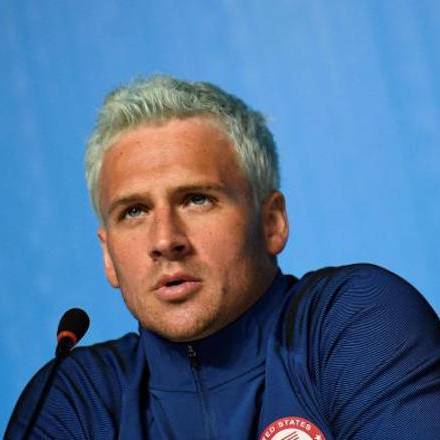
Ryan Lochte went to the Rio Olympic Games as one of swimming's main attractions. With doubts over Phelps's performance after his comings and goings from the pool, the Rochester swimmer was a sure thing for the United States and for his sponsors in the two events he would compete in: the 200m freestyle and the 4x200m relay. He seemed ready to stand out, with his hair bleached so that the cameras would not lose sight of him, and with a New York Times report praising his revolutionary style of turning in the pool. He seemed just about invincible and was among the great hopes for the US in Rio, such as Simone Biles.
However, unlike the young gymnast, Ryan Lochte was unable to leave his sporting mark on the records of the latest Olympic Games. Once again beaten by the untiring Michael Phelps in the 200m freestyle and without any chance of climbing the podium in his favourite event, Lochte returned home with "only" a gold medal in the 4x200m relay. Nevertheless, Lochte will be remembered whenever the subject of the Rio Games comes up.
Once his participation in the Games was over, the swimmer decided to go on the town in Rio before returning home, and this is where the story becomes complicated. An alleged assault without any evidence that in truth was an act of vandalism in a petrol station was followed by flight to the United States while his party friends remained in Brazil with their passports confiscated by the law.
The truth has fallen on Lochte like a ton of bricks, both in the media exposure as in the loss of sponsors. From featuring among the swimming stars of the United States, along with Phelps and Nathan Adrian, accumulating sponsors along the way, he is now being abandoned by brands one after another. It began with Ralph Lauren, which dressed the United States Olympic team and which had used Lochte's image to garner attention, and it has continued with Airweave and the beauty brand Syneron Candela.

Among the brands that have given up on Lochte is, naturally, that giant of swimming, Speedo. The brand announced that it would give the 50,000 dollars that was part of the swimmer's contract to charity programmes for children in Brazil.
The penitent
After the truth came out, Lochte began a media tour, with his original hair colour and a more serious tone than usual, admitting that the story of the assault is "an exaggeration and an act of immaturity". However, his explanations have not convinced the brands, which have cut off one of the swimmer's main sources of income.
Lochte's case is not new. Phelps suffered the economic consequences of a mistake, but he had his vengeance against Speedo in Rio, where he expanded his legend alongside a brand that is now direct competition for the swimming giant. Media outlets like The New Yorker have already called into question the attitude of Lochte's sponsors. Was it necessary to react so abruptly to a story that had still not been fully explored? As the US magazine pointed out, the swimmer has gone from being a sportsman hailed by his country to becoming the ugly duckling of the United States. Could it now become a new story of redemption in sport?